The Archipelago is a reference for intercultural coexistence in Spain. Around half a million residents in the Islands were born abroad, and 35% of them have already acquired Spanish nationality to get more involved in the community’s development.
Brahim Bilali / Andrés Cruz
Brahim Bilali Brahim
[–>
Supervisor
Brahim was born in a humble neighbourhood in Casablanca, Morocco. At a year and a half old, his mother passed away, and he was raised by his paternal aunt. He combined high school studies with work to survive. At twenty, he received the call that would completely change his life. His sister, a resident in Las Palmas de Gran Canaria since 1990, asked him if he was interested in coming to the Islands to improve his living conditions. He couldn’t refuse. Without hesitation, he said yes. The only condition his sister imposed was not to communicate anything to the family. So, Brahim travelled to El Aaiún, in Western Sahara. There he found out that the journey to the Canaries would be by patera. He had to pay 600 Euros to secure a spot aboard a precarious boat. The organizers of the expedition took Brahim to a house, where he spent a few hours with other young people who told him they had been waiting to depart for over three months. They justified the delay due to the alleged reinforcement of military patrols in the area and bad weather. That same night, several off-road vehicles drove Brahim and the other young people through the dunes in complete darkness, intending not to alert the authorities. After two days without food or water, they reached the seashore, where they boarded the patera. The journey was unstable. The waves pushed the boat with force, reaching heights of up to ten metres. “We saw death very close,” he asserts. Brahim obtained Spanish nationality after a decade of processing and has built his new life in the Islands. He found work as a supervisor at a youth centre, a profession he is proud of, he is married, and he already has a Canarian child.
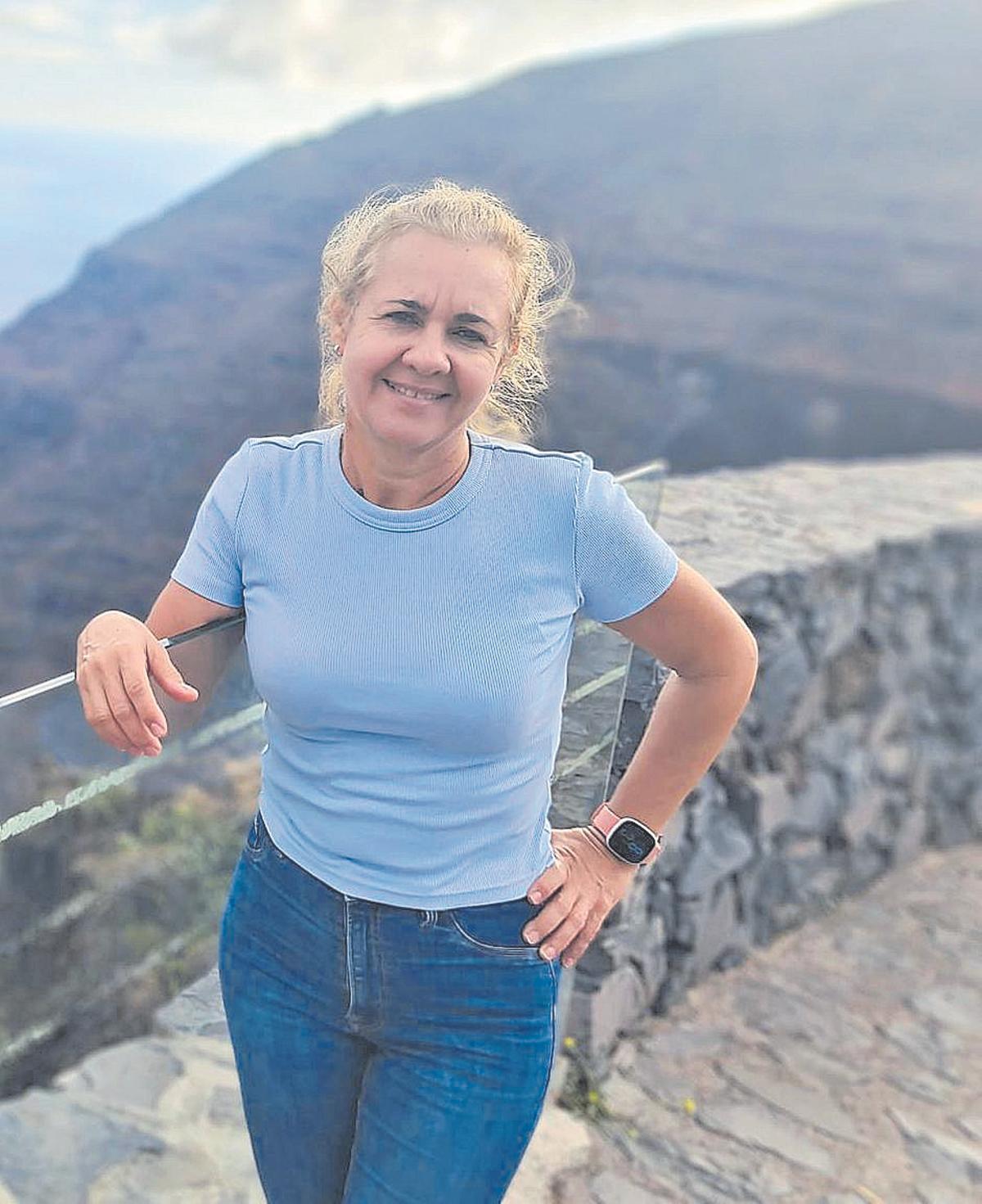
Saily Almaguer Conception / Andrés Cruz
Saily Almaguer Concepción
[–>
Pharmacist
Saily was born in Cuba in 1973. She completed her Pharmacy degree at the University of Havana and moved to Belgium with her husband. After being unable to conceive a child naturally, she arrived in the Canaries in April 2006 with the intention of undergoing in vitro fertilization. Like many migrants who come to the Islands, Saily had family in Agaete through her husband. However, despite arriving at the airport legally, they remained in the Archipelago without papers until they regularised their status by working for several years. She worked as a waitress in local bars, cleaned homes, and cared for the elderly and children. On July 12, 2008, the joy of her life, Ian, was born. “It was the happiest day of my life,” she comments. Divorced from her husband, it was several years before she could return to Cuba to introduce Ian to the family she left behind. As she moved between different jobs, Saily managed to validate her pharmacist title in January 2010. Upon returning to Gran Canaria, Saily met her current partner while teaching salsa in the municipality of Agaete. “I met him through a couple who welcomed me as soon as I arrived on the island. In fact, she is my son’s godmother. I stopped teaching salsa as soon as I started working in the pharmacy, but sometimes I would meet up with him to teach him a few steps,” she reminisces. In 2012, Saily obtained Spanish nationality for living several years in the Canaries, as well as for her work as a pharmacist. She highlights that there were no issues during the process, and it was granted to her without difficulties. For Saily, the Islands have been the setting of very good memories and experiences. “I had some problems because I didn’t have my family close by, and besides, I had divorced my son’s father. Despite not having blood relatives around, only my son, I am indeed surrounded by friends whom I consider my Canarian family,” concludes the pharmacist.
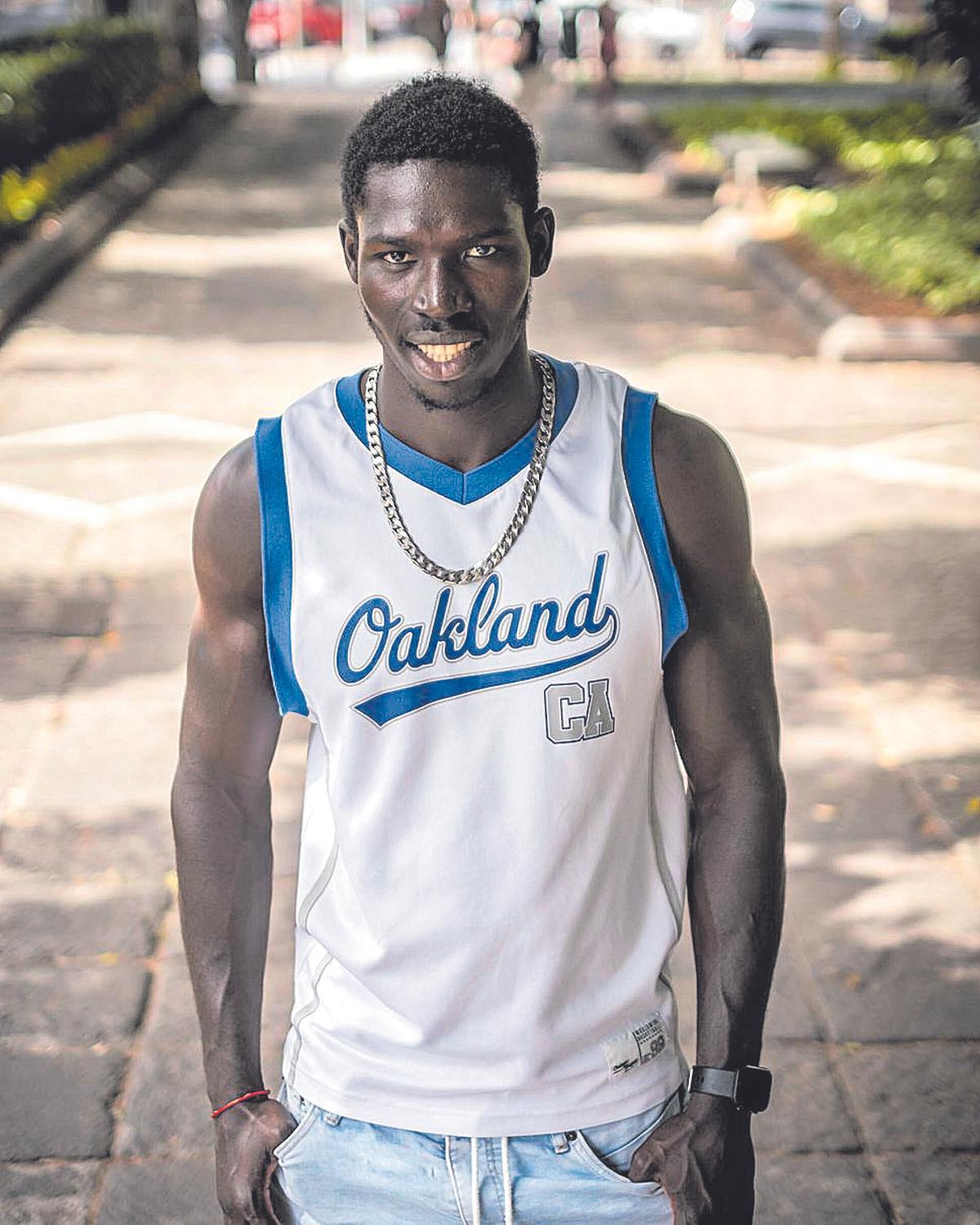
Bamba Diop / Andrés Cruz
Bamba Diop
[–>
Educator and translator
For Senegalese Bamba Diop, Tenerife represents his people in Senegal. The sea -which he loves-, nature, and the mountains are some of the similarities he finds between the neighbouring territories. “I feel at home here,” he states. The people are also more open and willing to help, which, he confesses, is another reason why he fell in love with the Canaries. In his case, the well-heard motto in his country of Barca o Barsahk (Barcelona or death) was never a priority because he wanted to build a new life in the Islands. The 24-year-old arrived in a cayuco in 2018, on a five-day journey that was not easy. In Senegal, he was a sailor and knew well what he was facing when he set off for the Archipelago. Once he set foot on solid ground, at 17 years old, he was sent to the dungeon until through bone tests they discovered he was a minor. Language was one of the main difficulties Bamba faced. One ofChunks of currency, as his journey didn’t end when he stepped off the boat and, in fact, it is far from over: “The process is very long, but I have been lucky to meet people who support me a lot, and that’s why it hasn’t been so tough.” The Senegalese has formed such important friendships that he considers them his brothers, “my Canarian family.” His cousins and father also live on the Islands, specifically in Gran Canaria.
Nowadays, Diop holds two jobs: the first one in a banana company in Tenerife, and the second as an educator and translator in a reception centre.
The young migrants going through the situation he experienced six years ago see him as a beacon of prosperity and a mirror to look into. Those who arrive and do not speak Spanish need support mainly from translators to communicate with the authorities and avoid situations like his when he ended up in a cell. Bamba is “fighting” to obtain nationality, as it is not an easy process, while he holds a residence permit. His goal for the coming years is to become a police officer, but just in case that doesn’t work out, he has a backup plan ready: to open a restaurant with African and Canarian cuisine because cooking is another of the boy’s great passions.
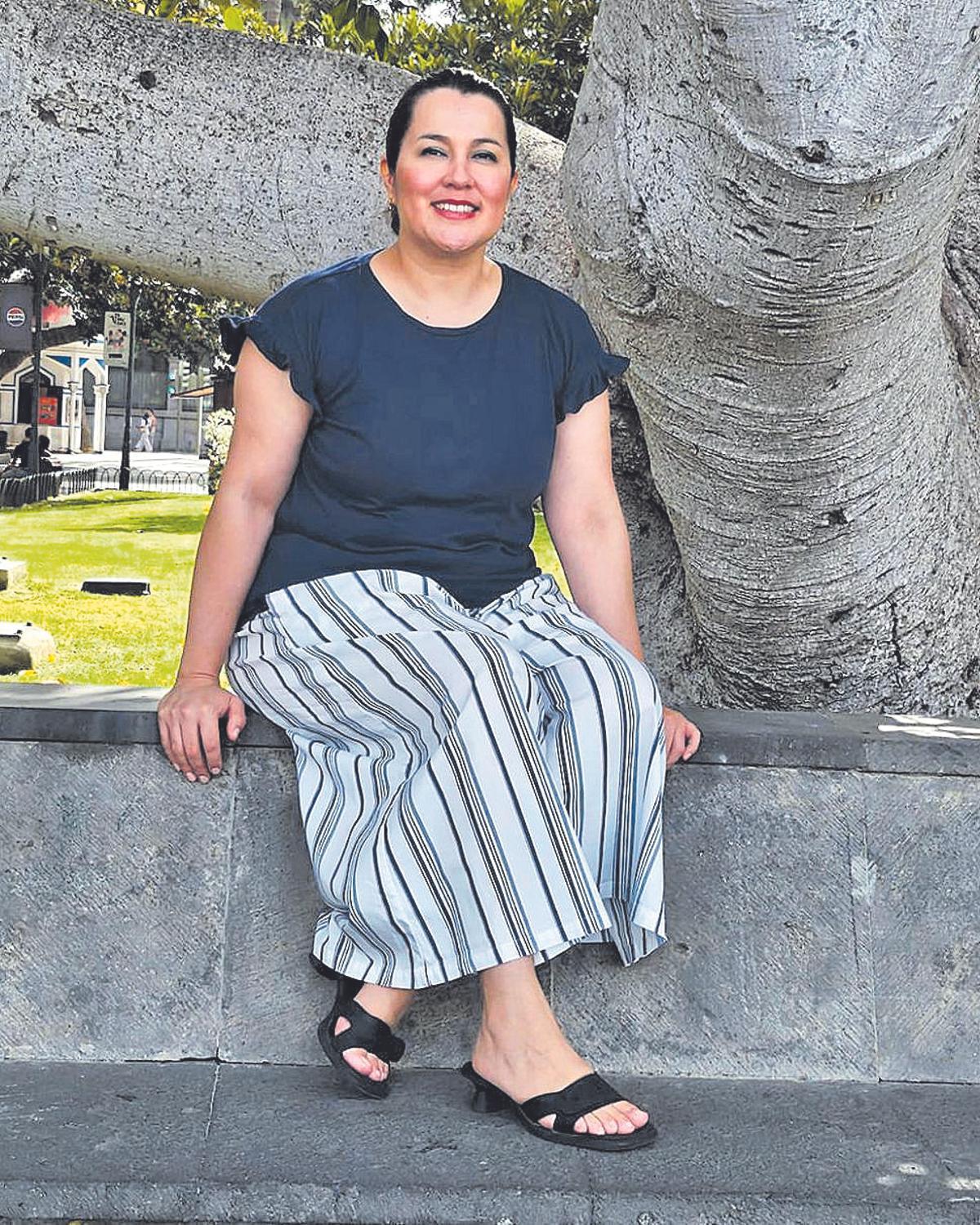
Sandra Leticia Mireles Daniel / Andrés Cruz
Sandra Leticia Mireles Daniel
[–>
Doctor
Sandra was born in Monterrey, the capital of the state of Nuevo León, in Mexico. She discovered the Canary Islands in 2009 when she decided to look for a partner online. Although she was hesitant to trust people she met online, she attributes it to coincidence, karma, or destiny to have met her current partner, a lawyer born in San Mateo (Gran Canaria). Sandra recalls that they had a great connection from the very beginning, as they both sought a serious relationship. Once, while exchanging messages online, she decided to call him, and upon hearing his voice, she knew he was the missing piece. She decided to visit him and spend Christmas together. On her second trip to the Islands, he proposed to her. “I decided to leave my life in Mexico mainly for love, but over time I realized the wonders and tranquillity that the island offers. The peace, security, and women’s rights are a great treasure for me,” acknowledges Sandra. Destiny also helped her to process her move to the Canary Islands. The university where she studied opened a call for the homologation of Medicine degrees, under rigorous scrutiny from the European Union embassy and an agreement with several universities in Madrid. The ambassador from her hometown, Monterrey, was a Spanish doctor who sympathized with her situation and helped her through the process. Sandra, who has worked as a family doctor since 2011, recalls that she and her husband found it difficult to have children. Nonetheless, they didn’t give up, and after 4 years, they managed to have their daughter through in vitro fertilization. Now she leads a fulfilling life, with ups and downs: “I won’t lie. Sometimes we have faced racism, but we know it’s due to fear of the unknown and ignorance.” She obtained Spanish citizenship after living several years in Spain, and the process was straightforward due to her years of work as a doctor in the country and the time she has been residing in the Archipelago.
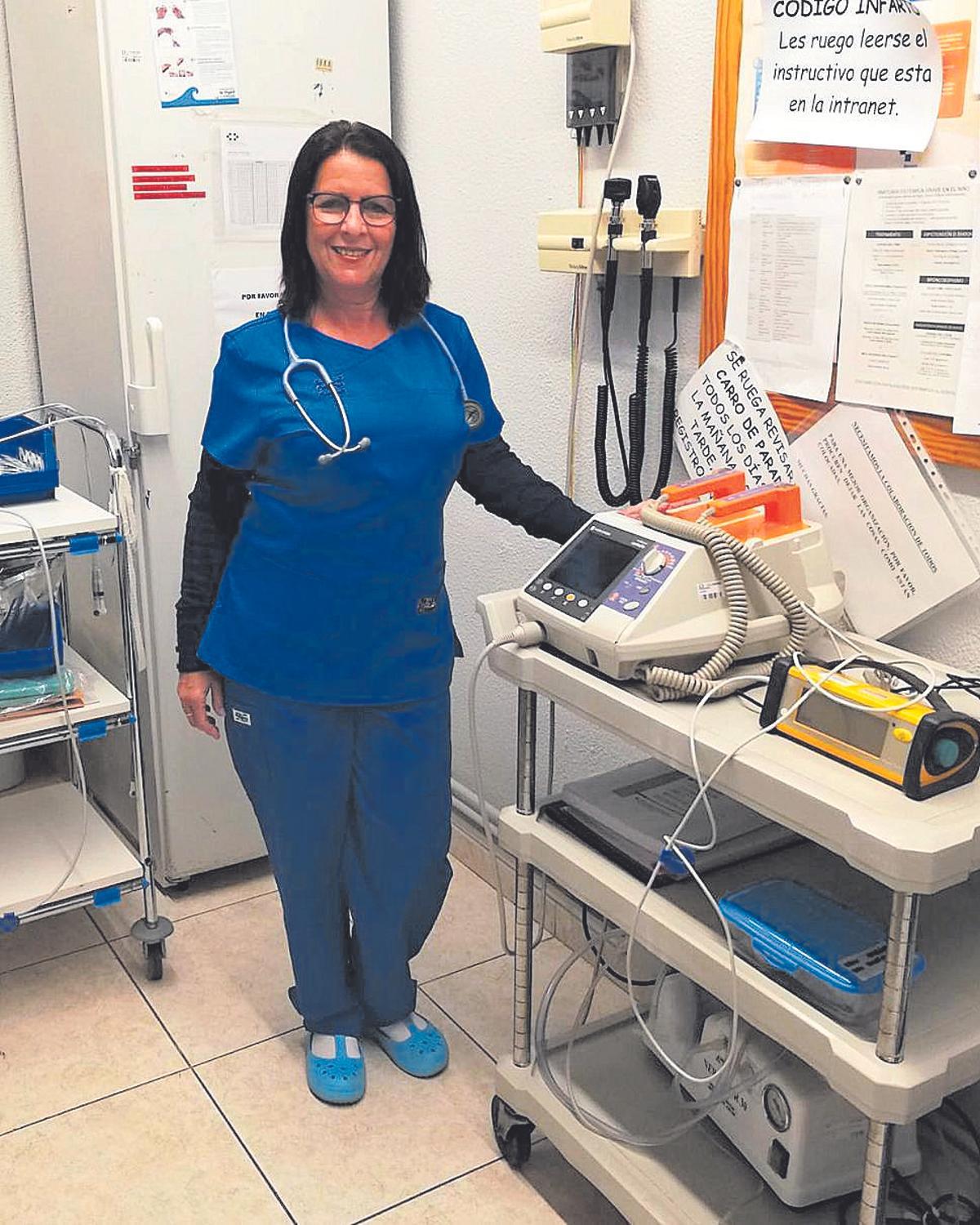
Queen Gloria Trujillo Valdes / Andrés Cruz
Queen Gloria Trujillo Valdés
[–>
Doctor
Queen Gloria is a Cuban doctor living in Gran Canaria who considers herself a lover of dance and elderly people. Born in Havana in 1960, she was a laboratory technician specialising in haematology while studying Medicine. She managed to graduate after 6 years, with a son, Idel Yanier, in her care. Before migrating to the Canaries, she travelled the world aboard a ship with her ex-husband, who was a chief engineer, working in the Cuban Merchant Navy. She recounts that, 14 hours away from reaching Vietnam, she survived a shipwreck, emerging unscathed after spending 17 hours outdoors. Her passion for travelling brought her to the Canaries in the 1990s, and she was captivated by the similarities she found with her Havana. “I dress up for Canary Day. I come from an island very similar to Gran Canaria. The population, the streets, especially those in the historic centre, remind me a lot of my country,” she explains. She has worked in almost all health centres in Gran Canaria, highlighting the El Calero Health Centre. “My colleagues are my family. They have been very good to me. They have given me stability, both work-wise and emotionally. I love them,” affirms the doctor. Since the first of July, she has been working as a stand-in at the San Gregorio Health Centre in Telde, but starting from this week, she also works as a stand-in at the Lomo Magullo health centre in Telde. Apart from her love for the elderly, dance, the Canaries, and her work as a doctor, Queen Gloria emphasises the importance of her two children in her life. Idel Yanier works at a youth centre in Gran Canaria while competing for the National Police. Her daughter, her pride and joy, named Queen Victoria in her honour and born in the Islands, studied Criminology at the University of Salamanca. Queen Gloria obtained Spanish citizenship with ease, thanks to the years she worked as a doctor in the country and the time she has been living in the Archipelago.
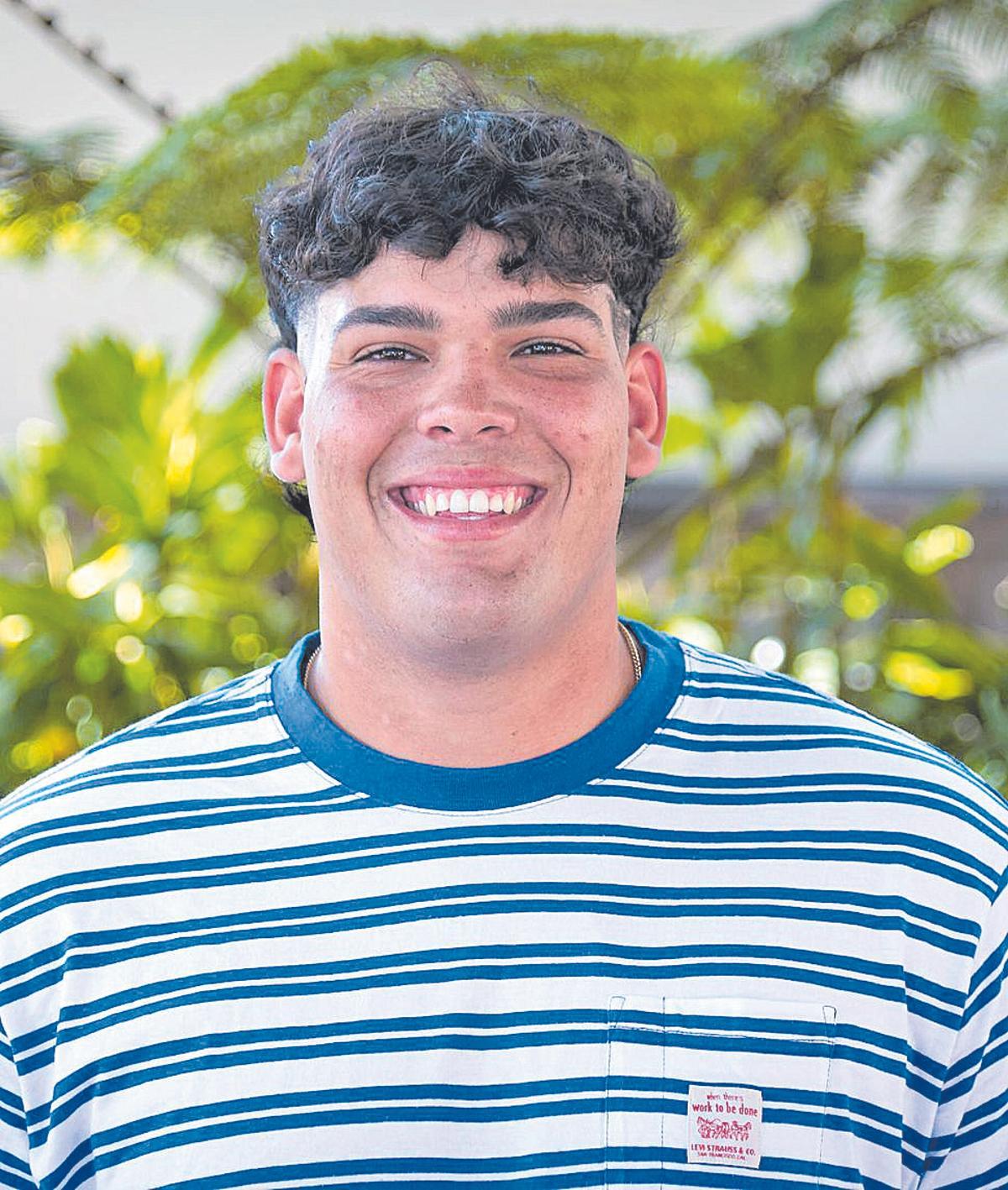
Ricardo Mendoza Schiappacasse / Andrés Cruz
Ricardo Mendoza Schiappacasse
[–>
Baseball Player
Ricardo Mendoza Schiappacasse has
Ricardo’s Multifaceted Journey
At just twenty years old, Ricardo’s heart is already divided among the three lands where he has lived. The first is the place of his birth and where he spent his childhood, the city of Charallave in the state of Miranda, Venezuela. The second is Madrid, where he started a new life with his parents and met his best friend. And the third is Tenerife, where he currently resides and also plays on Spain’s best baseball team. The reality is that he has practically spent more time away from his home country – around four years in the Peninsula and five in the Canaries – than he lived there, as he left when he was eleven.
His parents came for political asylum, a right that people persecuted for different reasons can avail of, and settled in the capital. Ricardo arrived in the islands after participating in a baseball championship where the best in Spain gathered, catching the attention of the owner of the Tenerife Marlins team in Puerto de la Cruz.
Initially, he came alone and lived with his coach until he could bring his family. He recounts that they initially faced “a complicated situation where they didn’t have much money,” but everything improved when they arrived in the archipelago. He obtained citizenship nearly seven years after arriving in the country. Specifically, at the beginning of the previous league, a year and four months ago. Despite having some Spanish relatives in his family tree, an Italian grandfather and Polish great-grandparents, he managed to naturalise after a lengthy process unrelated to that. “I missed championships and selections with the national team for not having it, but fortunately I now have it,” he states. The adaptation process is usually not easy when changes come during adolescence, but he confesses that it couldn’t have gone better for him. In Venezuela, he had friends he missed at the beginning, but he was always well-received here. His first day holds a curious story: “I arrived on a day when there was a strike and there were only four people in class, Salazar, one of them, became my best friend to this day.”
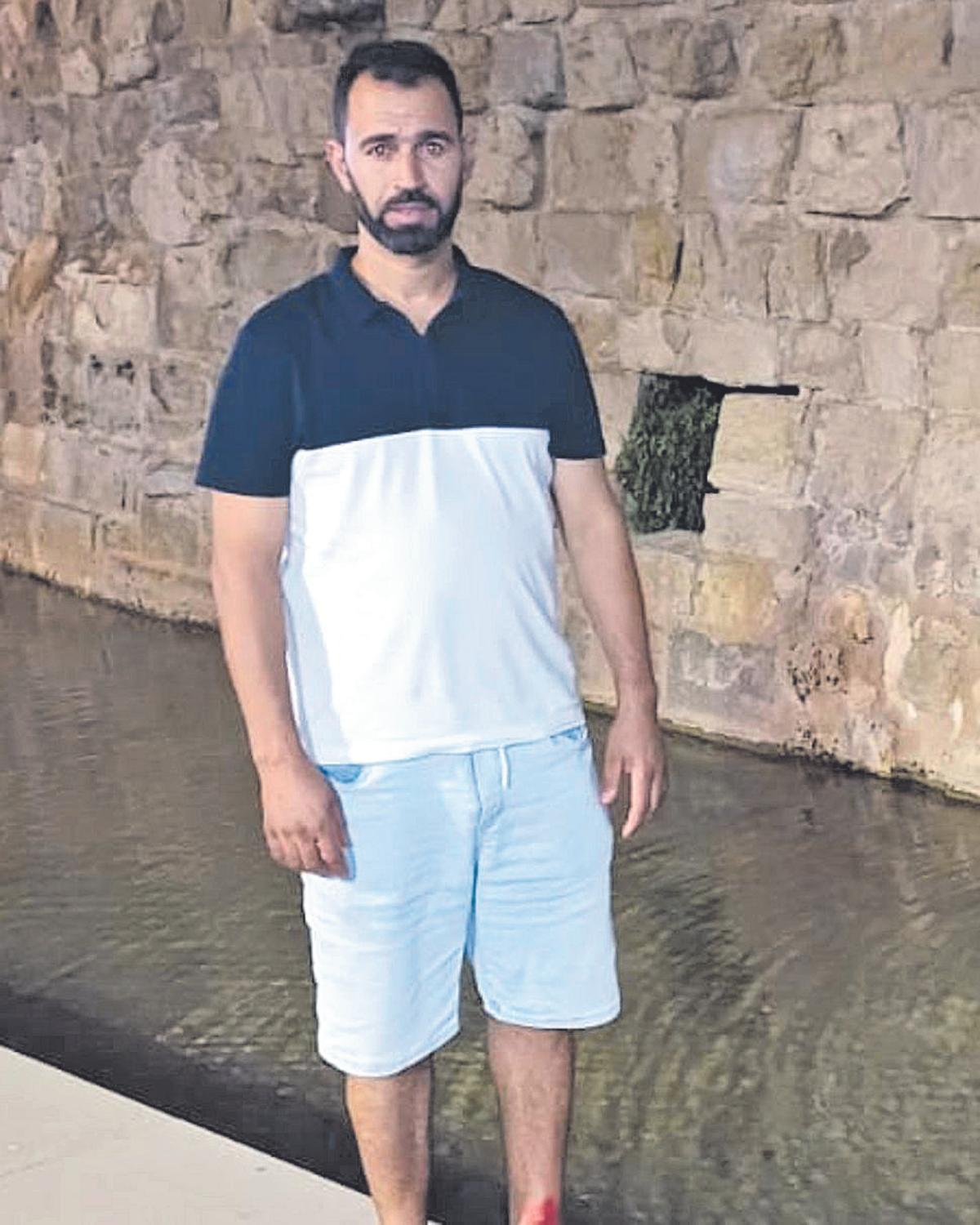
Ettouhami and Zahira Essalmi / Andrés Cruz
Ettouhami and Zahira Essalmi
Estate Worker
Ettouhami was born in Morocco and arrived in the Canaries in 2003 with the intention of improving his future due to experiencing severe economic crises in his country. Like all migrants boarding a makeshift boat, Ettouhami set sail unaware of the harsh weather conditions he would face during the journey to reach the islands. Despite the rough seas and heavy rains during the voyage, Ettouhami achieved his goal of reaching the island shores. Once settled in Gran Canaria, he managed to bring his wife from Morocco and start a family. Ettouhami is aware that some migrants survive the journey while others disappear into the sea. “Here is where I found my first treasure. My daughter Nour, who is now eight years old,” he explains. After four years, his second son Saad was born, and a few months ago, the family grew with the arrival of Osaid. Having three children born in the archipelago, Ettouhami applied for Spanish citizenship after a decade in the Canaries, working in various occupations, gaining experience in agriculture and banana plant care. He is thankful to the Canaries for the opportunity to build a family, which he considers the mainstay of his life. Ettouhami acknowledges that everyone is very happy on the island and highlights having secured a stable job that allows him to continue developing professionally. He now works as an estate worker in the town of Sardina, in the municipality of Gáldar. His primary role is to care for a banana plantation from start to finish: cutting dry leaves, harvesting banana clusters, and labelling them for sale. “Migrants arrive in another country without knowing anyone and not knowing what to do. We have to fend for ourselves, and we are also required to have papers to work. I hope the paperwork speeds up because we can wait up to three years to obtain the required documentation,” he concludes.
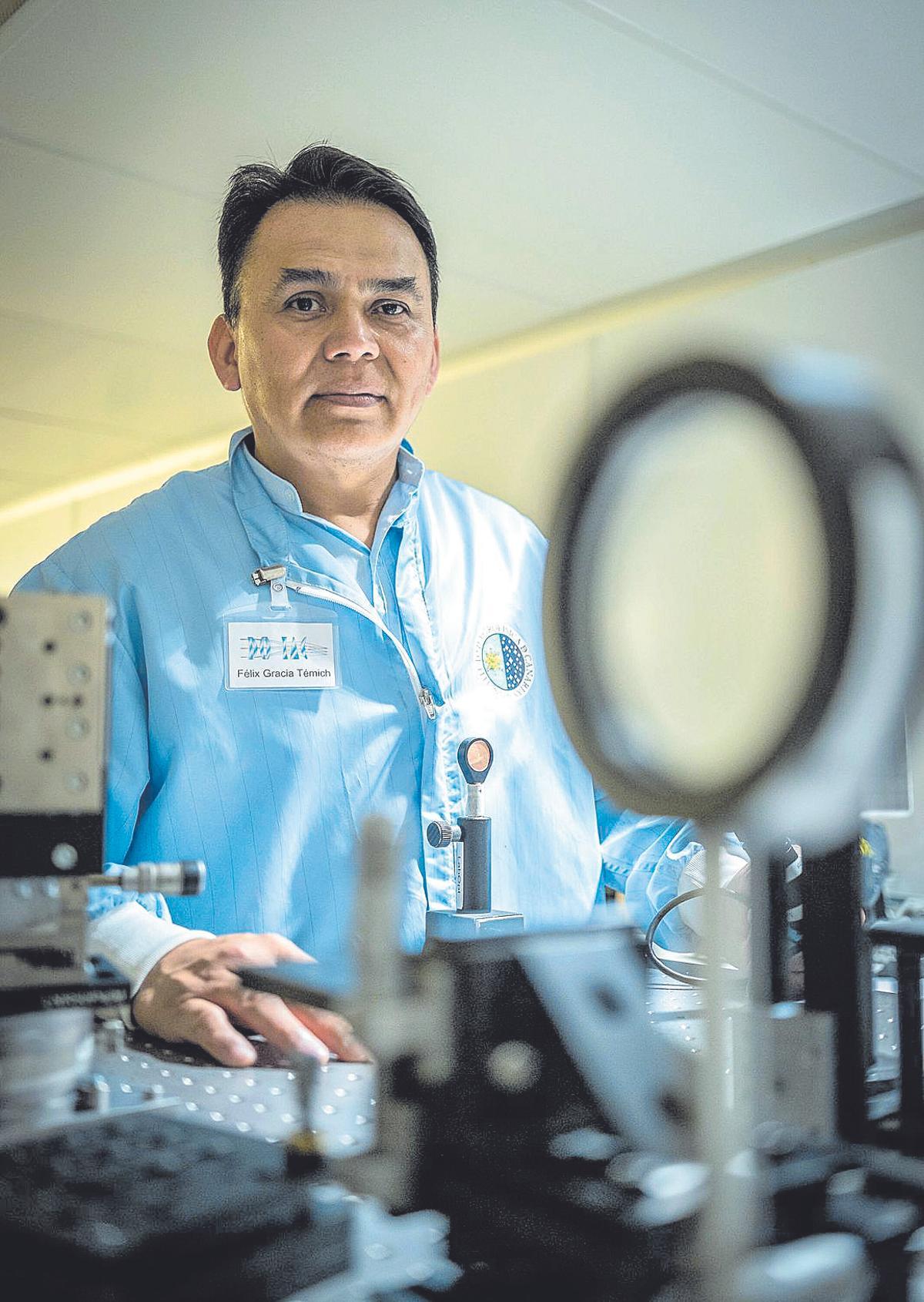
Felix Gracia Temich / Andrés Cruz
Félix Gracia Témich
Physicist
Physics has always fascinated Félix Gracia Témich. He left Mexico with his family to arrive in Tenerife after a journey he would always remember. Lost flights and passports aside, on September 27, 2006, he landed in the archipelago drawn by astrophysics and, in particular, by the Roque de Los Muchachos Observatory, one of the largest in the world. He studied Physics, then pursued a master’s and a doctorate, specialising in the design and manufacturing of optical instruments. In his homeland, he worked in engineering related to the military, a job that did not excite him much. Then, the opportunity to focus on research arose, for which he had to spend time abroad. “Physics brought me to the Island, the planets aligned, and thanks to an agreement, I chose the Canaries,” he recounts.
The original idea was to return to work there, but the situation in Mexico changed with repatriations, and he was offered to stay at the Institute of Astrophysics of the Canaries (IAC), where he still belongs. It took two years from when Félix went to the Civil Registry to inquire about the naturalisation process until he finally obtained it. His wife did not have it so easy, as due to an error in the family’s courtesy visa, she remained here illegally for eight years. He acknowledges that the main problem is the bureaucracy, but they have always been delighted here: “We let ourselves be loved, and they love us a lot, so we are comfortable.” The IAC attracts people from many different countries, so he reveals that he has never felt rejected. His daughter arrived at seven years old, now holds a degree and a master’s from the ULL. The family has grown since they arrived, “we have a completely Canarian cat.”
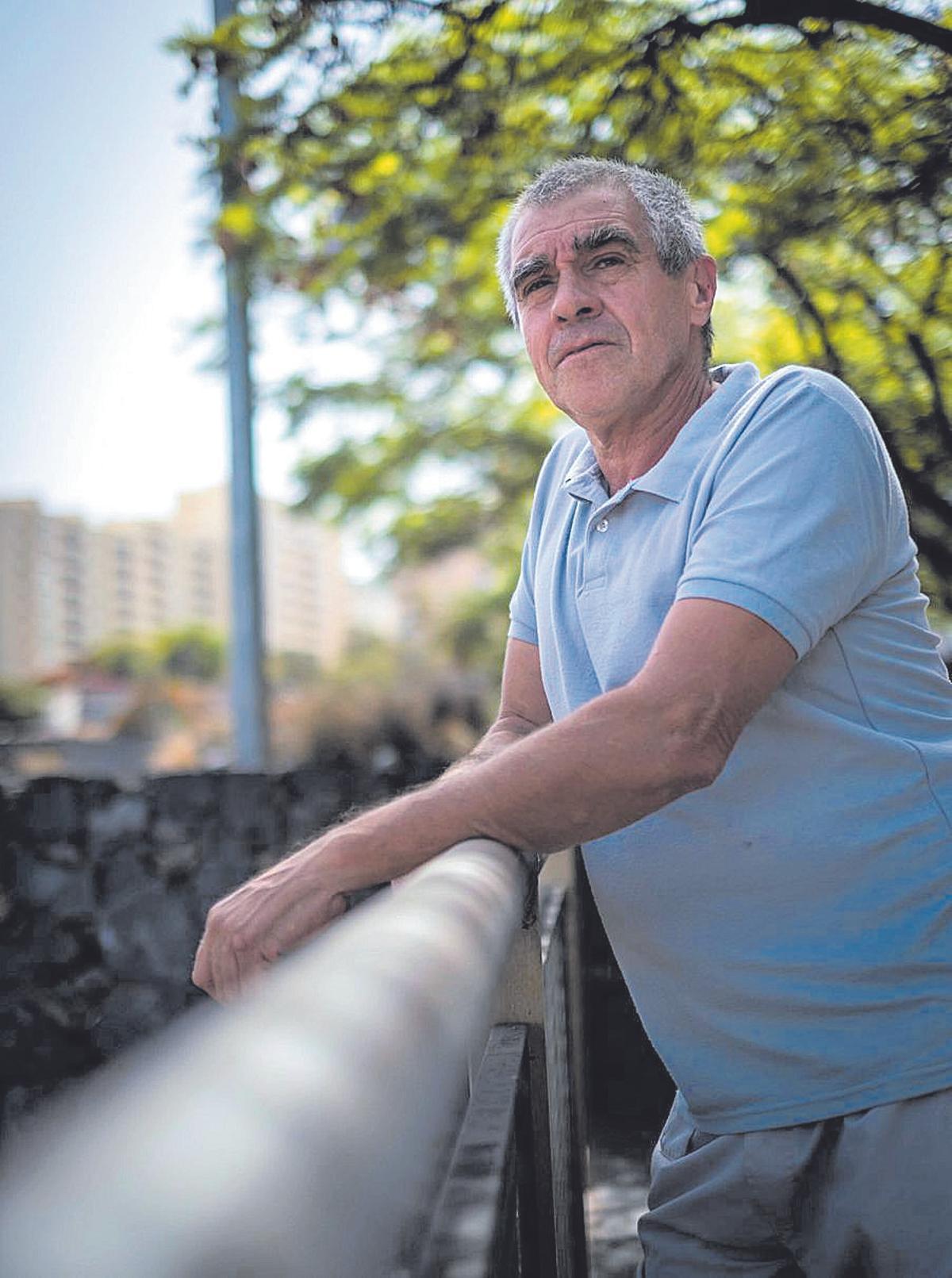
Alfredo Caraballo Rocha / Andrés Cruz
Alfredo Caraballo Rocha
[–>
Bricklayer
Alberto Caraballo was born in Uruguay 58 years ago. His new life began in November 2002 when he arrived in the Canaries. He didn’t choose his destination, as he claims, “the reality is that it was a matter of chance.” At the travel agency, he asked for a place in Spain where he could fly from Montevideo, and that’s how Tenerife was offered to him. When he arrived at the beginning of the century, he already had a process facilitated by the Spanish embassy in his country, showing him the requirements to obtain residency. “The truth is I didn’t have it as easy as I thought,” he reveals. The day after his arrival, he registered and joined the Social Security system, and the next day he was already working, but without a contract.
For many years, he worked as a bricklayer, a profession that was abundant and profitable at the time due to the construction boom. However, it was difficult for him to find a place to live because landlords were wary of renting to immigrants, and he also lacked documentation. He stayed in a hostel with his wife and two daughters for at least four or five months and then, thanks to a friend, he got his “long-awaited and expensive first rent.” From there, his situation improved as he obtained residency. A document he had fought for and tried to process on many occasions without a response. Contracts were much simpler then, and he was able to obtain family roots for his daughters. In 2013, eleven years after his journey, the long-awaited citizenship arrived.
Always involved in construction and maintenance, when the bubble burst, he started training to teach others the bricklaying trade. Academies, courses in prisons, for the Canarian Employment Service, and a long list of occupations that have led him to his current job: training young African migrants in the regularization process. A task he performs in a foundation that, as he sees it, prepares them beyond the classrooms, with a lot of real practice to enhance their future employability. His family, with whom he now lives in Santa Cruz de Tenerife, came with him from Uruguay 22 years ago. In the family gatherings that bring them together, there are already some new Canarian members. Specifically, one daughter’s boyfriend. The other daughter’s partner, also from an island but from another Spanish archipelago, is from Mallorca. He doesn’t have grandchildren yet, but he eagerly awaits them.
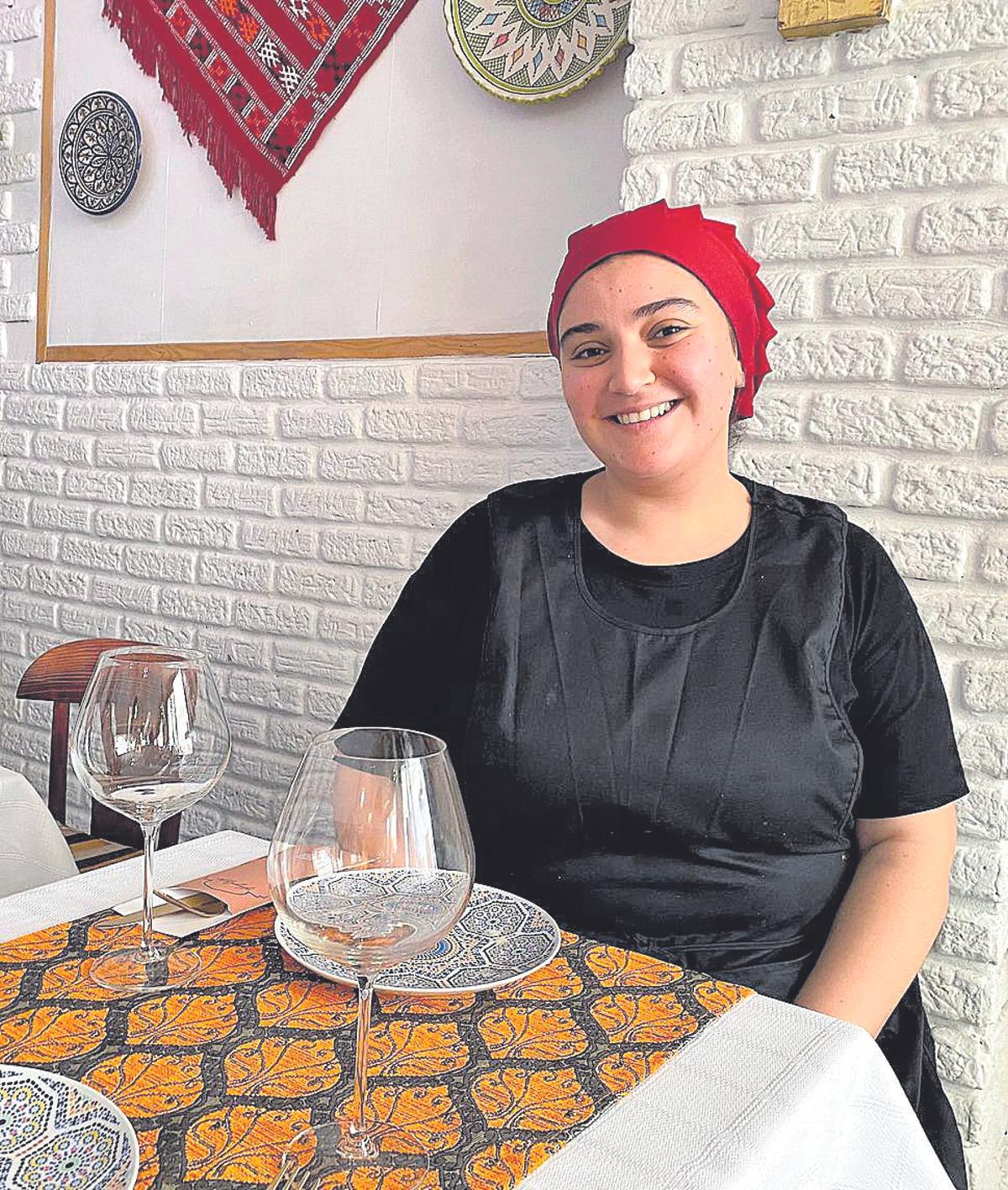
Rim Touri / Andrés Cruz
Rim Touri
[–>
Cook and student
Rim Touri was born in Morocco and arrived in the Canaries in 2008. The 23-year-old was fortunate not to have to risk her life at sea to migrate on a makeshift boat, one of the common routes many Africans take when they have no other option to leave the continent. Another stroke of luck for Rim and her family is that they have managed to preserve and bring much of the Moroccan tradition, gastronomy, and culture to Tenerife. A feat made possible by the family business they opened in Puerto de la Cruz, the Hayaty restaurant – which means “my life” in Arabic. The name was a collective decision because they put “their whole life and a lot of love into the project.” The Canaries and the city of Tangier, where the Touri family hails from, merge in a venue decorated with Moroccan craftsmanship but overlooking the Fishing Pier and the iconic Fisherman’s Monument.
The decision to move to the Canaries was made by her father, who lived in Barcelona for work and visited the Islands during a vacation. “He wanted to reunite the family and thought the best place to do it was Tenerife,” says Rim. Now, as she finishes her studies in Speech Therapy at the University of La Laguna (ULL), she helps her mother in the kitchen of the restaurant owned by her older brother, Nassim. “My mother has been teaching me since I was a little girl. Every day I learn more, and there are specific dishes that I take care of myself.”
[–>
At the moment, they do not have citizenship, but they have had the right to apply for it for about six years. “Those of us from Morocco must reside here for ten years to be able to apply for it. In my case, I applied for it a year ago, and I am still waiting,” she explains. Meanwhile, they have a permanent residency permit. The young woman admits that she has not been particularly interested in obtaining it, but she would like to have it because “it guarantees certain rights like the right to vote.”
Subscribe to continue reading
















